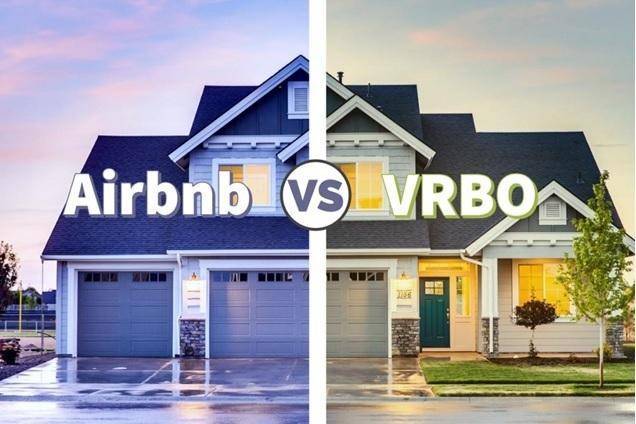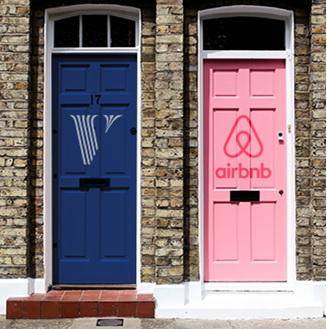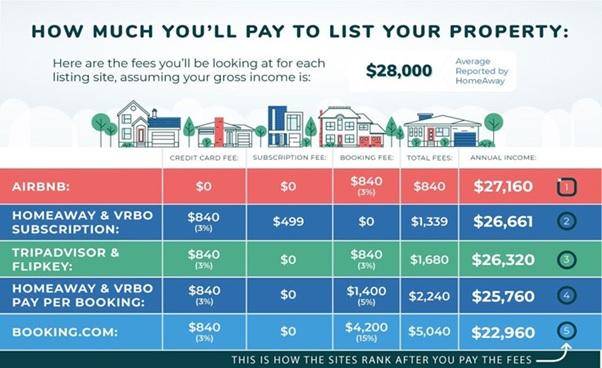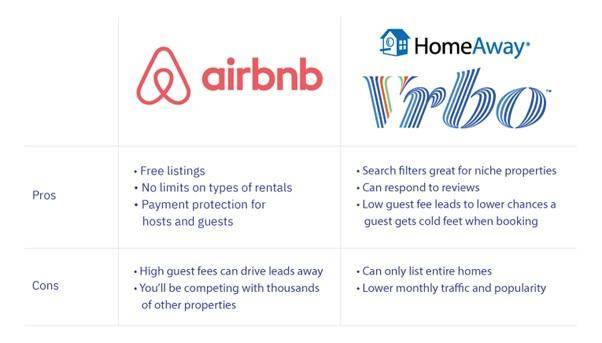
While travelling and looking for affordable options of accommodation, Airbnb and Vrbo are two of the most popular websites. They both offer a variety of short-term vacation rental properties globally.
But it is necessary to know the pros and cons and similarities and differences of both the websites before engaging further either as a guest or owner.
To attract more guests, reduce vacancy rates, and boost revenue, a thorough knowledge is necessary to develop a profitable marketing strategy.
Brief History - Which is Better Airbnb or Vrbo
Founded in 2008, Airbnb has over 5.6 million listings in more than 200 countries. Vrbo (known initially as Vacation Rental by Owner) was established in 1995, bought by HomeStay in 2006, and is now under the Expedia Group. There are over 2 million property listings on Vrbo, and it ranges from over 190 countries.

Both Airbnb and Vrbo connect homeowners who are looking forward to leasing out their property to travellers searching for short-term lodging.
The first and major difference between the two would be that Vrbo provides properties only exclusively. In other words, if you are renting out a property through Vrbo, the entire space would be yours.
It dominantly offers stand-alone vacation homes only. On the other hand, Airbnb offers stand-alone vacation homes, shared spaces and even hotel rooms. Airbnb is relatively cheaper and less typical.
They even offer discounts on long-term stays which Vrbo does not provide. Airbnb also happens to have a larger selection of listings and has an option of ‘instant booking’ available which makes it easier for the guests
Feature Comparison

Another significant difference for guests is that Airbnb’s website has a user-friendly interface. It is easier to use, while Vrbo provides multiple scattered property options on the website, making it harder to navigate.
Setting up your cancellation policies and Airbnb damage deposit is complicated as it’s hard to find those options on the website. But on the upside, the more complex interface provides better functionality.
While Airbnb is easier to use, Vrbo gives more precise results to guide you towards your ideal stay through the advanced search bar, which lets you filter out your demands.
Another key difference is that Airbnb penalises you for cancelling while Vrbo doesn’t. It is straightforward to cancel through Vrbo; you just have to press a button and heed the warnings.
But Airbnb penalises you, making it extremely difficult to use for someone who relies on immediate bookings on their income property. Airbnb offers you three free cancellations per year, but that is not feasible.
Cost Comparison

As owners listing their property either on Airbnb or Vrbo, keep the damage deposits in mind. While Airbnb provides its property owner with some insurance coverage, Vrbo does not offer any such safety net.
Therefore, if you are listing your property on Vrbo, keep your damage deposits to a reasonably high level as you won’t have any other safety net.
Suppose you are an owner of multiple vacation rental properties. In that case, it might be easier to use Airbnb because it is designed to manage numerous properties in a unified and sorted manner. Vrbo, on the other hand, does not provide for a unified view of your bookings over multiple properties.
Another key difference is in the charges of the host commission. Airbnb charges you a nightly rate of three per cent on your property booking. Contrarily, Vrbo charges a higher rate of 5% with an additional 3% card processing payment on each booking. So, Airbnb is substantially cheaper for the host.
But if you look at it from guests’ perspective, Airbnb charges them 12%-18% while Vrbo charges them 10%-15%. And considering the latter is cheaper for the guests, there is more likely to be more significant traffic footfall there.
Exposure - Which is better Airbnb or VRBO
It is also important to note that Vrbo is the vacation rental company of the Expedia Group. Therefore, if an owner lists their property on their website, it is likely to gain more considerable exposure as it would also circulate amongst other related sites which the group hosts.
Airbnb does not have any other associated child websites where their listed property would get automatically published.
Suppose you are an owner of multiple vacation rental properties. In that case, it might be easier to use Airbnb because it is designed to manage numerous properties in a unified and sorted manner.
Vrbo, on the other hand, does not provide for a unified view of your bookings over multiple properties.

Another key difference is in the charges of the host commission. Airbnb charges you a nightly rate of three per cent on your property booking. Contrarily, Vrbo charges a higher rate of 5% with an additional 3% card processing payment on each booking.
So, Airbnb is substantially cheaper for the host. But if you look at it from guests’ perspective, Airbnb charges them 12%-18% while Vrbo charges them 10%-15%. And considering the latter is cheaper for the guests, there is more likely to be more considerable traffic footfall there.
It is also important to note that Vrbo is the vacation rental company of the Expedia Group. Therefore, if an owner lists their property on their website, it is likely to gain more considerable exposure as it would also circulate amongst other related sites which are hosted by the group.
Airbnb does not have any other associated child websites where their listed property would get automatically published.
Feature Comparison
Another difference that might be of importance to the hosts is that at Airbnb you can upload as many pictures of your property as you want.
However, while displaying your property on Vrbo, you can upload a maximum of 50 photos. While 50 is a good number, it would be harder to display all aspects of your property if you have a big villa.
Vrbo has a customized cleaning service fee which is a huge advantage for guests, particularly those on a short-term stay. Airbnb offers no service. They have a set cleaning fee for each booking, no matter the duration of their stay.
This is a drawback to the short-term guests for Airbnb because even if they stay for a night or a week, the cleaning fee would remain the same.
Vrbo allows the property owner to charge a pet fee from the coming guests, nightly or per booking, while Airbnb does not offer the same service. Vrbo also lets the property owner customize the payment method from the guests whereas Airbnb just simply states to pay within 24 hours of check-in.
Policy Comparison
Airbnb also has the most relaxed cancellation policy for guests. The guests can cancel their booking 24 hours prior to checking in while at Vrbo, you have to cancel seven days in advance to get a refund.
Vrbo also lets the property owner upload their own personal rental agreement with their property which the guests would have to adhere to. Airbnb offers one rental agreement for all which is there in the terms and conditions section during the registration process.
Both the platforms have both advantages and disadvantages. The key is to understand what you are aiming for and accordingly filter out your requirements, particularly as an owner who is trying to get their property listed or aiming to boost their property income.
Also ready my previous post What is Vrbo?









